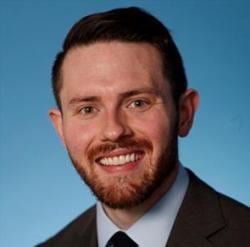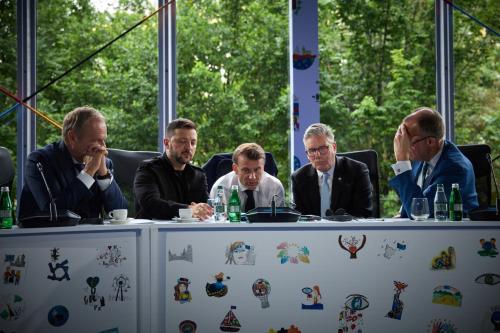On March 13, Brookings’s Center on the United States and Europe (CUSE) hosted a conversation between Estonian President Kersti Kaljulaid and Brookings President John R. Allen on the Estonian perspective on the internal and external challenges facing the European Union. The discussion centered not only on the importance of shared European and American values for continued prosperity, but also on the need to actively defend these values.
President Kaljulaid spoke forcefully about the role that alliances, international institutions, and liberal democratic values have played in securing Estonia’s current prosperity and in its high level of technical innovation. Yet she warned, “history is not over, and it is about to test us.” While Russia attempts to manipulate democracies across the globe and wages hybrid wars on the European continent, rapid technological advancement is changing the way the global economy functions and putting domestic institutions under stress. New technologies compound “all of the other risks which we had” and leave Western democracies open to exploitation. Responding to a question posed by CUSE Visiting Fellow James Kirchick regarding the rise of far-right populism in Europe, Kaljulaid noted that these parties had had success “because there is fear […and] the fear of our future can be exploited everywhere.”
Kaljulaid argued that trans-Atlantic cooperation is now more necessary than ever to face down the multiple internal and external challenges that the liberal democratic community faces. “We must stay united in defense of the values that we hold dear, and we must be ready to act, to stand up for what is right,” Kaljulaid said. “The role of the United States will remain critical for European defense,” she said, but a Europe that is “whole and free and in alignment with America” will be equally as important for American security. Upholding trans-Atlantic security is not “a one-way street.”
At the end of the discussion, President Kaljulaid and President Allen took questions from the audience.
The Brookings Institution is committed to quality, independence, and impact.
We are supported by a diverse array of funders. In line with our values and policies, each Brookings publication represents the sole views of its author(s).





Commentary
Defending shared values: Estonia in an evolving Europe
April 3, 2019